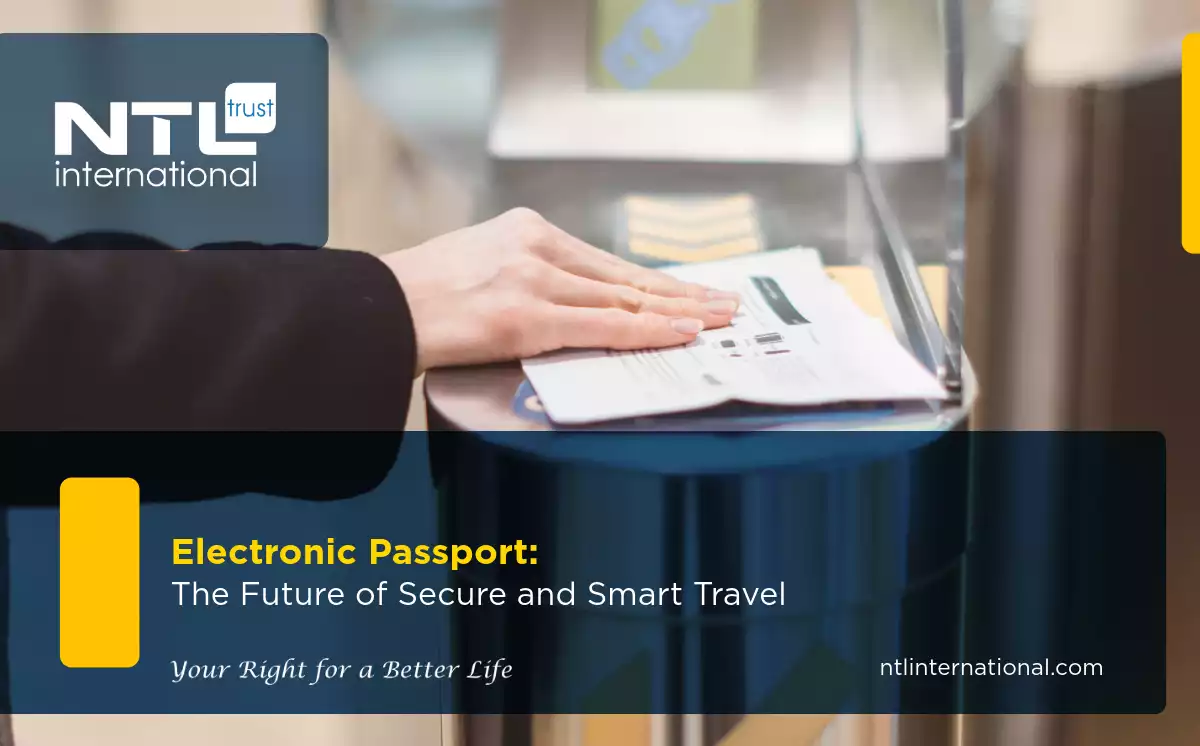
The Electronic Passport, often called an e-Passport or biometric passport, represents a breakthrough in international mobility. By embedding a secure microchip inside the passport booklet, governments can raise security standards, streamline border checks, and deliver a smoother travel experience for citizens and visitors alike.
What Is an Electronic Passport?
An Electronic Passport is an ICAO-compliant travel document containing a contactless chip that stores:
-
Holder’s full name and date of birth
-
Digital photograph in high resolution
-
Fingerprints and, in many cases, iris data
-
A digital signature that guards against tampering
The chip is protected by advanced encryption. Border officers use secure readers to authenticate the data and verify that the booklet has not been altered.
Global Roll-out and Key Milestones
-
1998: Malaysia issues the world’s first Electronic Passport.
-
2005: The International Civil Aviation Organization (ICAO) publishes Doc 9303, creating a single technical standard for all e-Passports.
-
2006–2010: Early adopters such as the United States, the United Kingdom, Germany, and Belgium introduce nationwide programs.
-
2019: More than 150 states issue e-Passports.
-
2025: Over 165 jurisdictions have transitioned, and several developing nations are in final testing phases.
Electronic vs. Traditional Passports
| Feature | Electronic Passport | Traditional Passport |
|---|---|---|
| Data storage | Secure microchip | Printed visa pages only |
| Forgery resistance | High, thanks to digital signatures | Moderate |
| Border efficiency | Eligible for automated e-gates | Manual inspection required |
| Identity verification | Biometric match in seconds | Visual comparison by officer |
What Are the Key Benefits of an Electronic Passport?
- Enhanced security
Encrypted biometric data sharply reduces identity theft and counterfeit attempts. - Faster processing
Travelers can pass through automated e-gates in seconds, cutting wait times and easing congestion. - Global acceptance
Most immigration systems now recognize e-Passports, allowing smoother connections and fewer secondary checks. - Contactless verification
Biometric matching is performed without handing documents back and forth, increasing hygiene and efficiency.
Impact on International Tourism
Airports that deploy e-gates report shorter queues and higher passenger throughput. Faster clearance encourages leisure and business travel, benefiting destinations that depend on tourism revenues.
How to Apply for an e-Passport
- Visit the official portal of your national passport agency.
- Complete the online application with accurate personal details.
- Upload a compliant passport photo.
- Schedule a biometric appointment for fingerprints and an optional iris scan.
- Pay the prescribed fee.
- Track the application; many authorities now issue e-Passports in less time than traditional booklets.
Upcoming Adopters
Countries preparing to launch nationwide e-Passport programs include Yemen, Ghana, Pakistan, Afghanistan, and several small Caribbean and Asian states. As training, equipment, and legislative frameworks fall into place, global coverage is expected to exceed 180 nations by 2028.
Challenges and Concerns
-
Implementation costs: Hardware, software, and staff training demand significant investment.
-
Privacy: Governments must protect stored biometrics from cyber-intrusion by using strong encryption and strict data-handling policies.
-
Public awareness: Travelers need clear guidance on caring for the chip and avoiding accidental damage.
Looking Ahead
Electronic Passports combine convenience, security, and speed in a single document. As adoption widens and technology advances, border controls will become more efficient while fraud risks decline. Ongoing investment in encryption and data governance will be essential to maintain public trust and ensure that the e-Passport remains a cornerstone of modern travel.
Facilities by German Government for Foreign Investors
The German government intends to encourage investors wishing to expand their horizons and achieve their ambitions to invest in one of the strongest global economies, by providing many good, promising, and easy investment opportunities and offering many facilities to attract investments and boost the growth of the German economy.
A tour of Spain and Spanish cuisine
f you are wondering why we advise you to choose Spain for your next vacation, we will not go so far, but did you know that Spain has the most famous international football clubs (Real Madrid and Barcelona) and it is the second country in the world that includes heritage places.
Interesting and Funny Facts About SPAIN
Spain is your choice for a safe life and a wonderful future:What if I told you about its ranking by the Global Peace Index 2020 at number 38 out of 163!!What about its privilege of providing free public health care, and having excellent international schools and...
Spain… Between the Eastern Legacy and the Western Modernity
If you want to travel to a European country but you are afraid of the idea of getting a cultural shock or a facing a difference in lifestyle, then Spain is the ideal choice for you.
Türkiye & UK 2021… New Agreement & New Investments
the Turkish Investors have started preparing their agendas to enter the UK’s investment market. This has come after the signing of the new free trade agreement between Turkey and the UK on December 29 last year, in the Turkish capital, Ankara.





